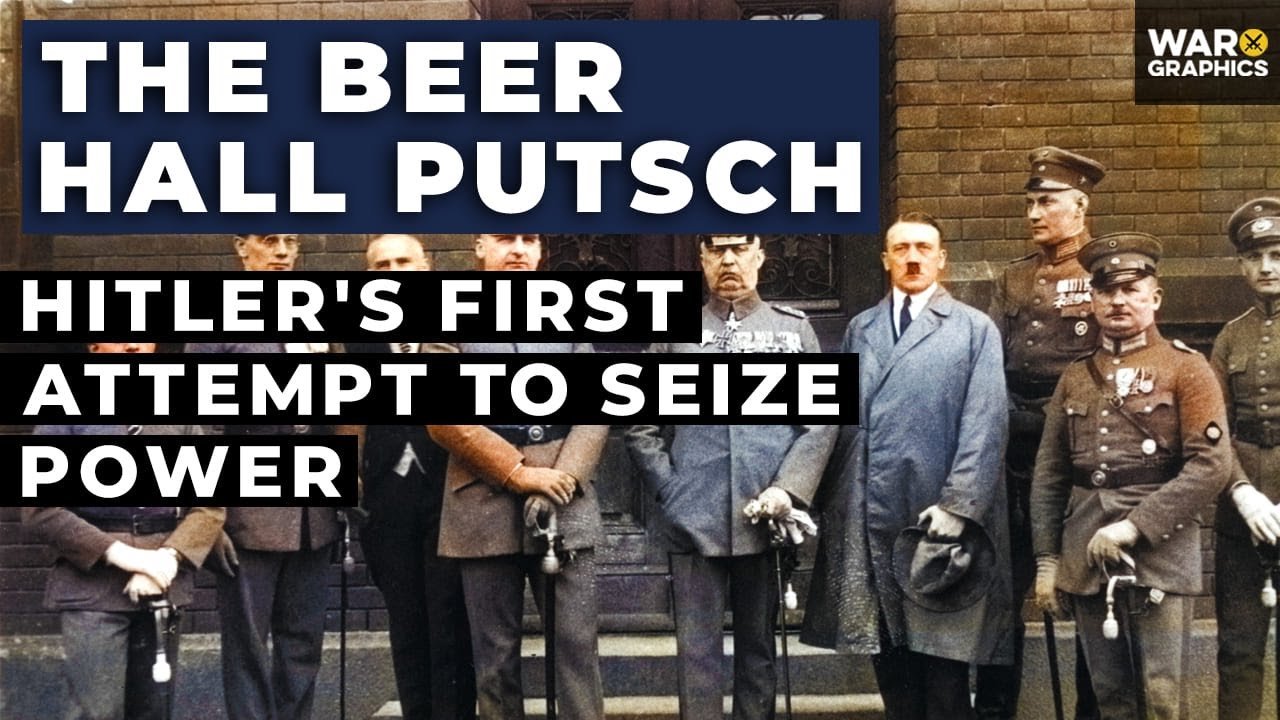The video outlines the Beer Hall Putsch, Adolf Hitler’s initial attempt to overthrow the German government in November 1923. It delves into the background of the political climate in Germany post-World War I, the factors leading to the putsch, and its ultimate failure. The narrative also touches on the aftermath of the event, including Hitler’s arrest, trial, and the implications for the Nazi Party’s future strategies.
- The Beer Hall Putsch took place in Munich, Germany, in November 1923.
- It was led by Adolf Hitler, aiming to overthrow the Weimar Republic and replace it with a nationalist government.
- The putsch was a response to Germany’s dire economic situation and the public’s dissatisfaction with the government.
- The attempt failed when the German government’s forces quickly suppressed the uprising.
- Hitler was arrested and charged with treason following the failed putsch.
- During his trial, Hitler gained national attention and used the opportunity to propagate his views.
- The event marked a significant turning point for the Nazi Party, which began to focus more on gaining power through electoral politics rather than outright rebellion.
This summary has been generated by AI.

Leave a Reply